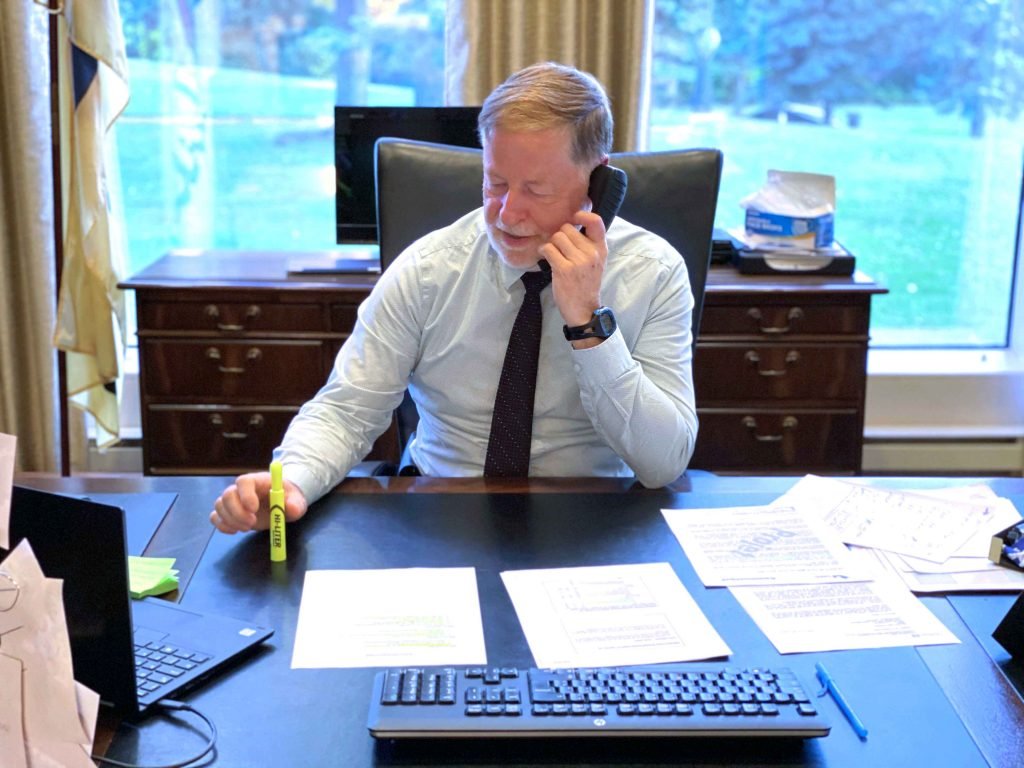City wanted to know it still had its AA credit rating before acting, says Demers
Laval mayor Marc Demers announced on Wednesday afternoon that the city will be freezing taxes in the 2021 budget for residential, commercial, industrial and agricultural property owners.

The move comes after the City of Montreal and other Quebec municipalities previously announced they will be freezing their property taxes.
While the decision means that the average Laval property owner’s tax bill (based on the latest triennial valuation roll which was tabled in September last year) won’t go up in 2021, Demers cautioned that there could be exceptions to the overall rule.
“What we’re doing is freezing the tax income for the whole city at the same amount,” he said.
Properties that are re-evaluated because of significant renovations or improvements made since the last property roll came into force could see tax increases, added Demers.
“But I think that most people won’t see a difference on their tax bill,” he said.
Demers said another factor was the assurance that the City of Laval’s credit rating, which is evaluated annually, would remain stable despite the economic turbulence being generated by the COVID-19 pandemic. Laval’s credit rating currently is AA, “the best in the province,” Demers added.
Laval is currently sitting on around $750 million of debt, according to the mayor
“That determines the interest rate for the money we borrow,” he continued, noting that Laval is currently sitting on around $750 million of debt, and that it would be crucial not to increase the amount of interest paid on it.
Keeping interest down
“We didn’t want to increase the payments on interest. That was basically our goal. We were waiting for the government to see what kind of help they would be giving us, and we were also waiting for the advice of Mr. Ulysse and his team of professionals.”
According to Demers, the city administration had to plan ahead at least three years to evaluate the potential consequences of freezing taxes for a single 12-month period. “What are the consequences for the next year three years if we freeze taxes?” he said.
“And with the COVID-19, we don’t know what the impact of that might be in 2021 and 2022. If we are having a second wave, will there also be a third wave, a fourth or a fifth? Nobody knows.”
Elections next year
Some opposition members on Laval city council, while repeatedly pressing the administration to implement a tax freeze, had also suggested recently that a freeze might be an opportunistic move by the administration to curry favour from voters since the next municipal elections are in November next year.
Demers responded in this way to the suggestion. “I would remind you that before the last election, all parties except ours [the Mouvement lavallois] promised a tax freeze,” he said. “And a tax freeze doesn’t mean that you’re looking out for the interests of the citizens of Laval. “If I freeze the tax for two or three years, and the credit rating agency decides to lower the credit rating in three or four years, the citizens of Laval would pay a big, big price. So, I don’t accord any importance to such statements.”



